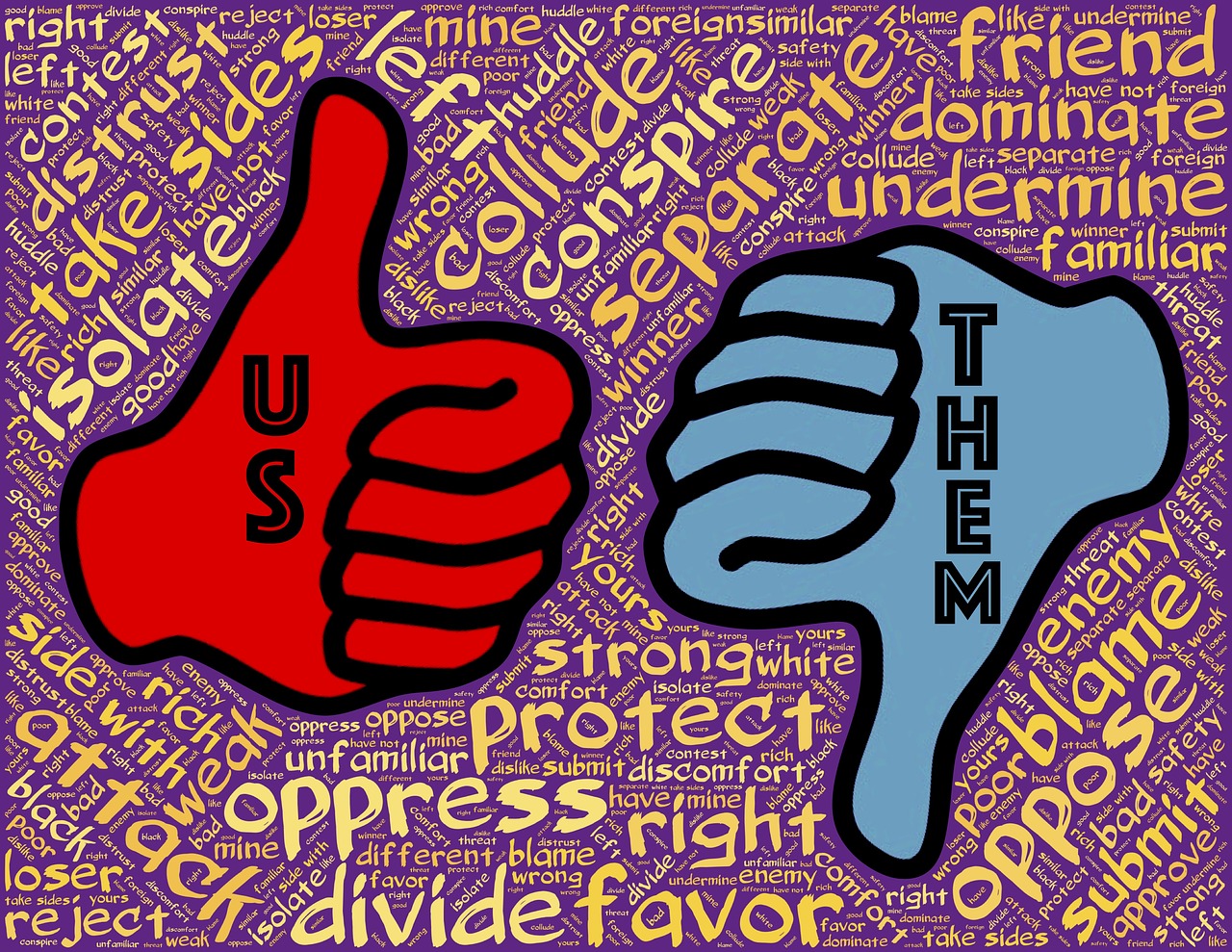The most dangerous threat to our republic is the belief that it’s us vs. them. The attitude that “they” are wrong, evil, stupid, anti-American, whatever, pick one. We tend to surround ourselves with people who think and believe like we do. Our closest relationships often agree that “they” are the problem. And we’ve let the tribalism ravage our republic.
What “We” Want
Widely, social and political scientists agree that social media has exaggerated these divides; as platform algorithms, personal “likes”, and shares help tailor the information we see to our existing known interests. Even people who want to engage with differing opinions continue to validate their own preexisting ideas through their use of modern communication platforms. To be truly informed, It takes intentional action.
Extreme political divisions have been growing since before social media, but social media has accelerated the divide because platforms provide us information about the world with no research of our own, and make it easy for a partisan messages to be repeated and heard, ad infinitum. It’s well understood in education and social science research that repetition of an idea can embed the idea as truth. When we continue to hear the same ideas repeated to us, especially in different settings and mediums, our own brains can hijack our intentions, and soon what was a difference is now a division. These divides are then stoked by leaders and media personalities who point the finger at “them”. For example:
“These Democrats are OK with letting the child die, the mother gets to decide.”
“I think it backfired on those Democrats when they all said you can have an abortion even after the baby is born or kill the baby after the baby is born,”
Ainsley Earhardt, Co-host Fox & Friends
“…you don’t have to make a single concession to a Republican voter. All you have to do to secure a Republican vote is show lots of pictures of gay people kissing or black kids with their pants pulled down or Mexican babies at an emergency room.”
Matt Taibbi, Rolling Stone
“Take guns out of the possession, out of the hands of liberals, take their typewriters and their keyboards away from ‘em, don’t let ‘em anywhere near a gun, and control their speech. You would wipe out 90% of the crime, 85 to 95% of the hate, and a hundred percent of the lies from society.”
Rush Limbaugh, The Rush Limbaugh Show
“Trying to get today’s Republican to accept basic facts is like trying to get your dog to take a pill. You have to feed them the truth wrapped in a piece of boloney, hold their snout shut, and stroke their throats. And even then, just when you think they’ve swallowed it, the spit it out on the linoleum.”
Bill Maher
We did this.
The divisions in this political moment have gone beyond any normal difference of opinion, building and growing into outright dislike and distrust of the other group, leading to disbelief and outright disdain for anything that can be categorized under the specter of “them”.

Yet, we reward partisan mudslinging by electing the people doing it. We, the voters, have to take responsibility for this. We elect them.
Worse, the divisions are pushing us to distrust and dislike not just the other group, but its individual members, with only partisan justification. The old Thanksgiving Day arguments have become a meme, but with societal consequences.
Our leaders now make objectively outrageous, reprehensible, and outright false statements on camera and across social media that even the deepest partisans would never have considered in years past. Factually untrue or personally disparaging remarks would have rallied nearly all people – regardless of party – around a common offense.
Even basic facts that should not be in dispute by anyone have placed many of the nation’s most trustworthy information sources in a partisan box, meaning that important facts for decision-making are not being considered – or sometimes not even heard – by otherwise intelligent critical thinkers.
We have let the fear of “them” make us all less informed, less understanding, and further away from each other. And we’re showing that with our votes, and our tolerance of completely partisan behavior. This has real-world consequences, as the data-driven video above (and associated research) shows.
We are in this Together.
In order to start bridging the gap, we need to start at the beginning. We MUST stop thinking of each other as Us vs. Them. We must start thinking about participation in representative government like being on a project team at work. There’s one deliverable that we are building. It will not be perfect for any single user, but it will be great for all users. We will have differing opinions. But we can use our differing needs to build a better product for all, not just for some. Whether we like it or not, we’re in this together. All of us, with all of our differences, AND all of our similarities.


